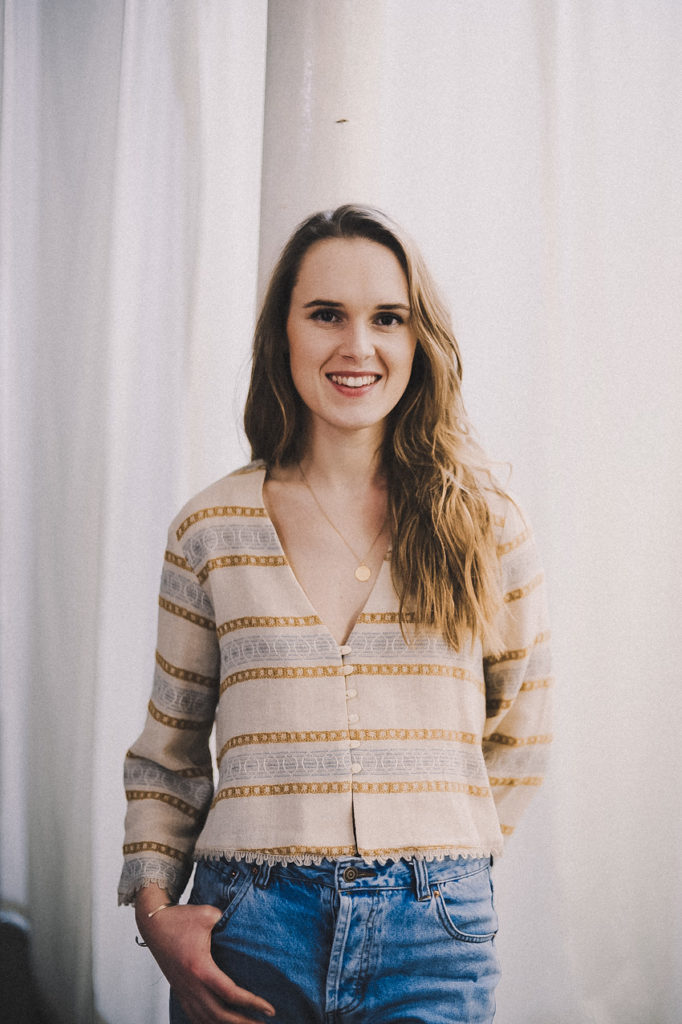
How to plan your first surf holiday
Hi, I’m Anna! As a social media expert, yoga teacher and ocean lover I tingle through the world and currently settled in my favourite city Lisbon. As an author I write for the blog surfnomade.de, because I love to share my experiences & adventures around the topic sea & surf with other people.

I had wild dreams of my first surf holiday. I saw myself majestically riding the colossal waves of the Atlantic Ocean, elegant, free and semi-professional on my first try.
That was five years ago and, to my surprise, it didn’t turn out quite as I hoped. I wasn’t able to stand up on the board even once. But I stuck to it anyway. Because I had so much fun, I loved the sea and I loved the challenge. Ever since then surfing has been my passion, it’s led me to travel all over the world and surf in my spare time. But, as I learned on my first holiday, surfing is not an easy sport. It takes courage, stamina and physical fitness.
Learning to surf: first steps
Find a good surf camp
Don’t forget: surfing is an extreme sport. There are many unpredictable facets to it, such as wave conditions, crowds, currents – and it’s vital you learn to surf in a safe environment. Don’t try to teach yourself – take some time to research the best surf schools and camps – every surf camp has its own unique charm and prices always vary so find out costs in advance.
Factor in distance: Ideally your camp will have access to a range of surf spots suitable for beginners.
Qualified surf instructors: Make sure your instructor has an ISA (International Surfing Association) certificate. This guarantees your coach is fully qualified to teach you how to surf.
Supervision: If you’re a beginner then train in small groups. 5 – 6 students per instructor is ideal – anything more than that indicates low quality lessons.
Average age: Surf camps cater to every age group, from teenage party camps to family-friendly surf spots. Just make sure you do your research beforehand so you don’t get any unpleasant surprises.
Video analysis: This is a great way to improve quickly and it’s something high quality surf lessons will offer. Video analysis allows you to watch yourself back and identify how you can improve. It means you progress fast and with the correct form.
Surf Theory
Theory is an important aspect of learning how to surf. This includes understanding the interplay between weather and waves, surf etiquette and right of way as well as the different types of boards. All of this will help you make fast progress.
And if you’d like some further reading grab a copy of WAVE CULTURE Surfcoach: Trainingsbuch und Travelguide für Wellenreiter – this book covers the basics.
The most common beginner mistakes and how to avoid them
Physical fitness
Surfing is a physically challenging sport so it’s important to get into shape before your surf holiday. A surf-specific workout practised daily makes a huge difference.
Stay patient
Practice makes perfect.You might not get up on the board the first few times but stick with it. Although it takes time, surfing is unbelievably rewarding.
Shortboards for beginners
Shortboards may not have the same “cool factor” as surf boards but they’re much easier to master. They’re slightly heavier than surfboards but will get you standing quickly and will give you that sense of achievement early on.
The best surfboards for beginners
Gentle waves are a must for beginners. Good places to start are the French Atlantic Coast, the Spanish Cantabria or the Algarve in Portugal. The waves aren’t so strong in spring, summer and early autumn – but in winter European waves become a lot more demanding.
Alternatively Bali is a surf beginners paradise or if you’d rather not travel so far Taghazout near Morocco is a haven for small, manageable waves.
How to surf safely
Collision with your own surfboard
It’s common that beginners get hit by their own board and although it doesn’t hurt too much, it’s still important you know how to protect yourself. Always cover your head with both arms when you lose sight of your board.
Surfer awareness
It is important you stay aware of other surfers to make sure you don’t get in anyone’s way.
Learning to read weather and wave conditions
As a beginner you won’t want to be in the water when a 5 meter wave approaches. Learning how to read forecasts is important and is something your surf camp should teach you.
How to deal with the dangers of the ocean
Currents: These are a big safety hazard so it’s important you understand them and know how to deal with them properly. If you get sucked into a current, try to stay calm and rather than paddling against the current, paddle diagonally towards the beach.
Reefs: If you’re surfing near or over a reef, make sure the water level isn’t too low and wear surf shoes to protect you from sharp edges.
Dangerous Sea Dwellers: It’s very rare for surfers to be attacked by sharks but it’s always best to avoid hunting areas. If you find yourself in the unlikely situation of encountering a shark, stay calm and avoid sudden movements.
Surf basics – equipment for beginners
Wetsuit: With water below 23 degrees you should definitely be equipped with the right wetsuit. This won’t just protect you from the cold, but from the sun and potential injury.
Surfboard: Surf camps will usually provide the board. Soft tops are recommended for beginners as these have low injury risk and carry easily on waves.
A leash that connects you and your surfboard will also be provided by the surf camp.
Good sun protection: Even when it’s cloudy, you should always use sun protection, especially as the reflection of the sun on the water exposes you even more to the sun’s rays. Waterproof sunscreen with high protection factor is highly recommended.
Surf poncho: A surf poncho not only keeps you warm and dry but it serves as a mobile changing room.
Your surf tips summarised:
- Find a really good surf school or surf camp
- Get a holistic overview of surf theory
- Get physically fit and practice your pop-up in advance
- Surf at a beginner-friendly spot
- Be patient
- Use good, high quality equipment
- Get to know the dangers of the ocean



Comments